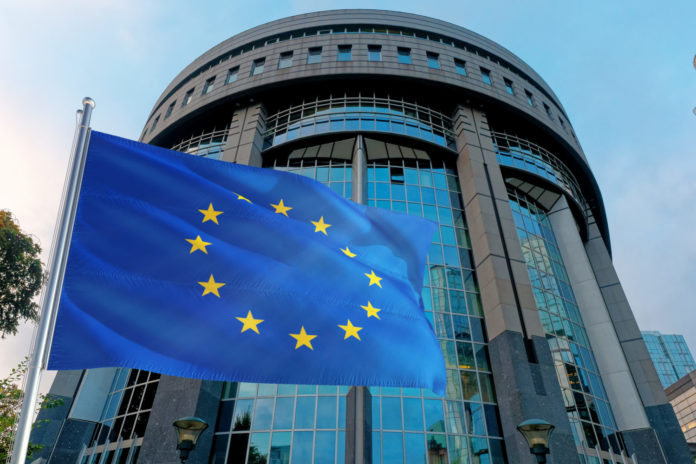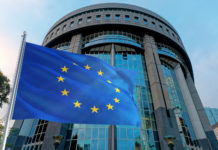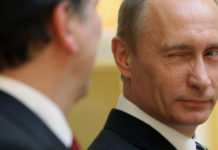
In the fight against the Corona economic crisis, the EU states have put together an aid package of more than 500 billion euros for workers, companies and struggling states
The finance ministers reached the agreement after extremely long and difficult negotiations. It was long, difficult and nerve-racking: but now there is a common European response to the Corona economic crisis. Half a billion euros are available.
The finance ministers reached the agreement after extremely long and difficult negotiations.
Germany’s Federal Finance Minister Olaf Scholz expressed his satisfaction. “Today is a great day of European solidarity and also strength”, the SPD politician said in Berlin.
Eurogroup leader Mario Centeno spoke of an unprecedented package against a crisis of unprecedented dimensions. “This is a huge effort”, said the Portuguese Finance Minister. Measured against that, he said, the agreement had been reached quickly. However, the negotiations in various rounds had taken three days. And in the end, important points of contention were postponed, including the question of joint borrowing via so-called corona bonds.
THREE SAFETY NETS
The package now agreed upon contains three points – according to Centeno, a “safety net” each for jobs, for small and medium-sized enterprises and for ailing states such as Italy or Spain, which are already in debt and are now also severely affected by the corona pandemic.
As aid for states, precautionary credit lines of up to 240 billion euros are planned from the ESM euro rescue umbrella; for companies, there is to be a special credit program of the European Investment Bank EIB, which is to mobilize 200 billion euros; and employees are to benefit from the short-time work program called “Sure” proposed by the EU Commission in the amount of 100 billion euros.
CONTROVERSIAL CONDITIONS
Until recently, the conditions for access to the ESM credit lines, which can amount to up to two percent of the economic power of the recipient country, were controversial. The Netherlands originally wanted strict conditions, but Italy and other countries rejected them. As a compromise, it has now been agreed that although the ESM loans are not subject to conditions, the money may only be used for direct and indirect health costs.
This agreement is perfectly clear, said Dutch Finance Minister Wopke Hoekstra in the evening. If money is needed from the ESM for economic consequences of the crisis, the usual strict reform commitments would have to be made. The Italian Finance Minister Roberto Gualtieri nevertheless celebrated the package as a great success for his government. The ESM programme should be ready in two weeks, as ESM head Klaus Regling said.
A NEW RECONSTRUCTION FUND
The ESM was established in 2012 at the height of the euro debt crisis. Secured by deposits from the euro states, it takes out loans on the capital market and, under certain conditions, passes them on to states that would have to pay higher interest rates on the market themselves or would no longer be able to obtain loans.
A new “Recovery Fund” is now to be created to support the economic recovery. This is also part of the agreement. However, the details are all open, including the sources of financing. Some states want to issue community bonds for this purpose, while others – including Germany – reject corona bonds.
Dutchman Hoekstra said that the text is deliberately vague here – everyone can interpret it in their own way. But for him, he said: “Eurobonds are something that was not okay for me, is not okay and will never be okay.
SUPPORT FOR THE GERMAN CHANCELLOR
Germany’s Chancellor Angela Merkel had also once again rejected joint bonds, but had explicitly backed the rescue package with its three elements ESM, EIB and “Sure”. The three points added up to many billions, the Chancellor said. In addition, there must be an economic stimulus package for the economy and jobs after the crisis. “Germany will also participate in this,” she said. She added that the discussions on the EU budget were now also taking place under completely different auspices.
Germany Finance Minister Scholz stressed that “three strong answers” to the crisis triggered by the Corona pandemic had now been found. “It is about the health of the citizens, it is about job security and it is about the fact that many companies will survive this crisis”, he said. French Finance Minister Bruno Le Maire also spoke on Twitter of an excellent compromise.
The initial reactions of other politicians were more reserved. EU Parliament President David Sassoli wrote on Twitter that the steps taken were in the right direction. Green European politician Sven Giegold said that at least an embarrassment had been avoided. “It was of great importance for Europe’s reputation that an agreement was reached in the last few metres.”.





























